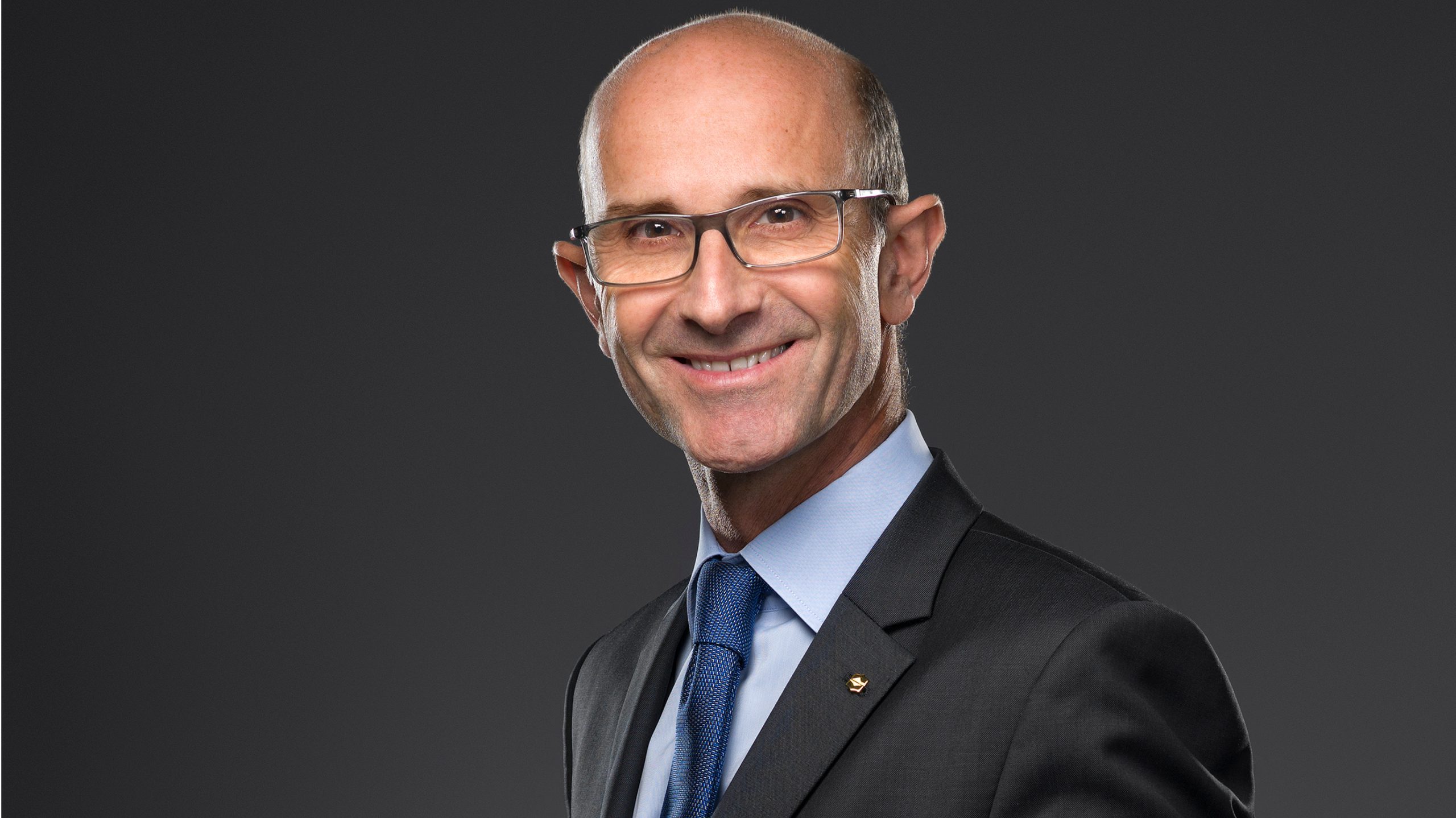
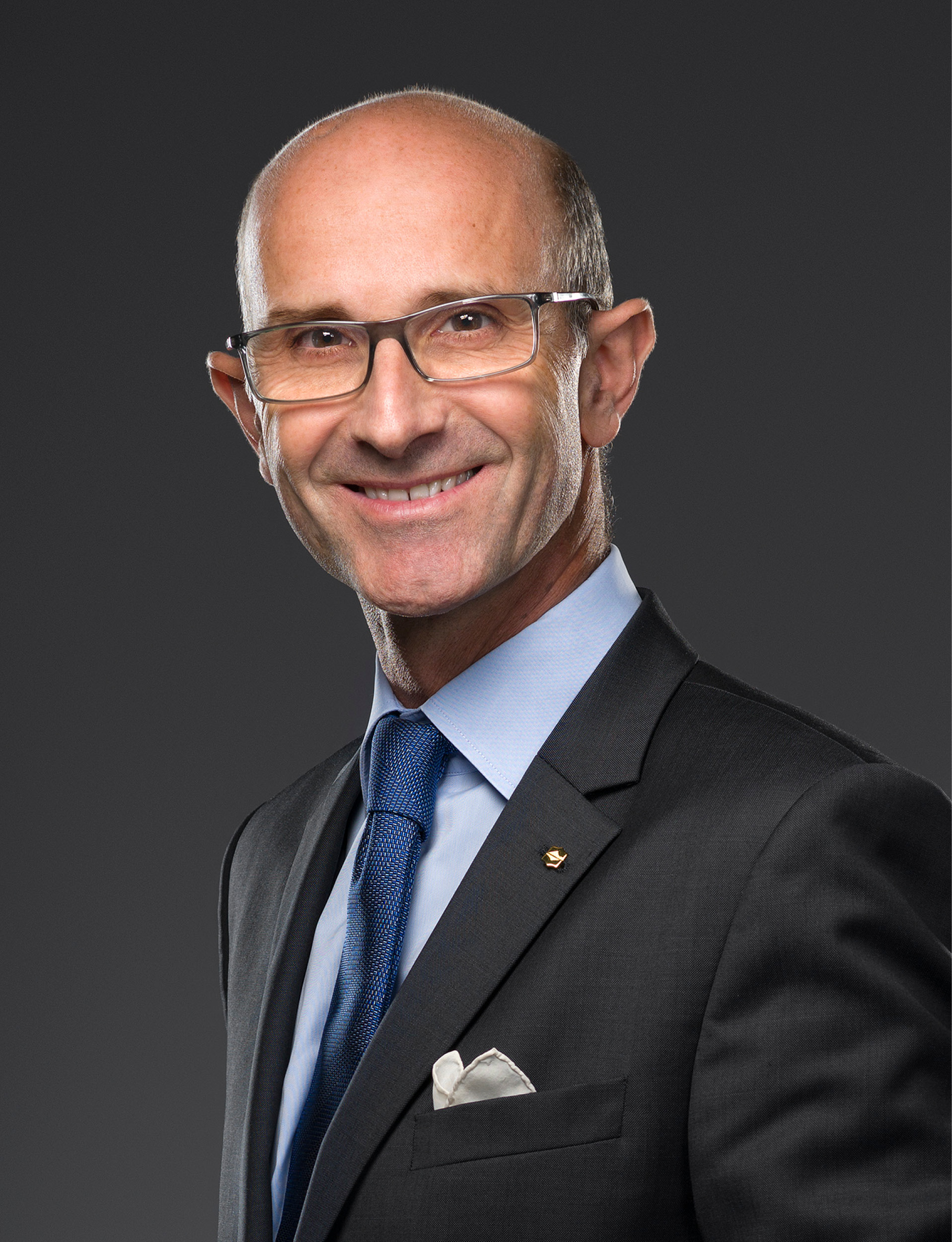

Having become acquainted with Guy Bertaud during January’s ‘Excellence by Vendôm’ conference in Paris, The Insider was keen to delve deeper into what makes this supreme hotelier tick…
As we look back on our careers, there are always a few unexpected factors that pushed us down different paths. Not many of us could point to our height as one of these – but Guy Bertaud can!
Hard to believe in today’s age of diversity & inclusion, but back in the day one had to be below a certain height to be accepted to train as a pilot in France. A tall man, Guy was above that limit; and so his dreams of making a career in the cockpit were left sitting on the runway.
Aviation’s loss was hospitality’s gain, however, as Guy went back to what had been his first love; having become besotted with the world of hotels during a childhood in which he traveled the globe with his financier father.
“I remember one time we were staying at the InterContinental in Amman, Jordan. I was just a young boy and I wanted to explore, so they showed me round the kitchens and other behind the scenes areas. I really loved it, and by the time I’d reached my teenage years I wanted to become a chef – although my father quickly put a stop to that idea!”
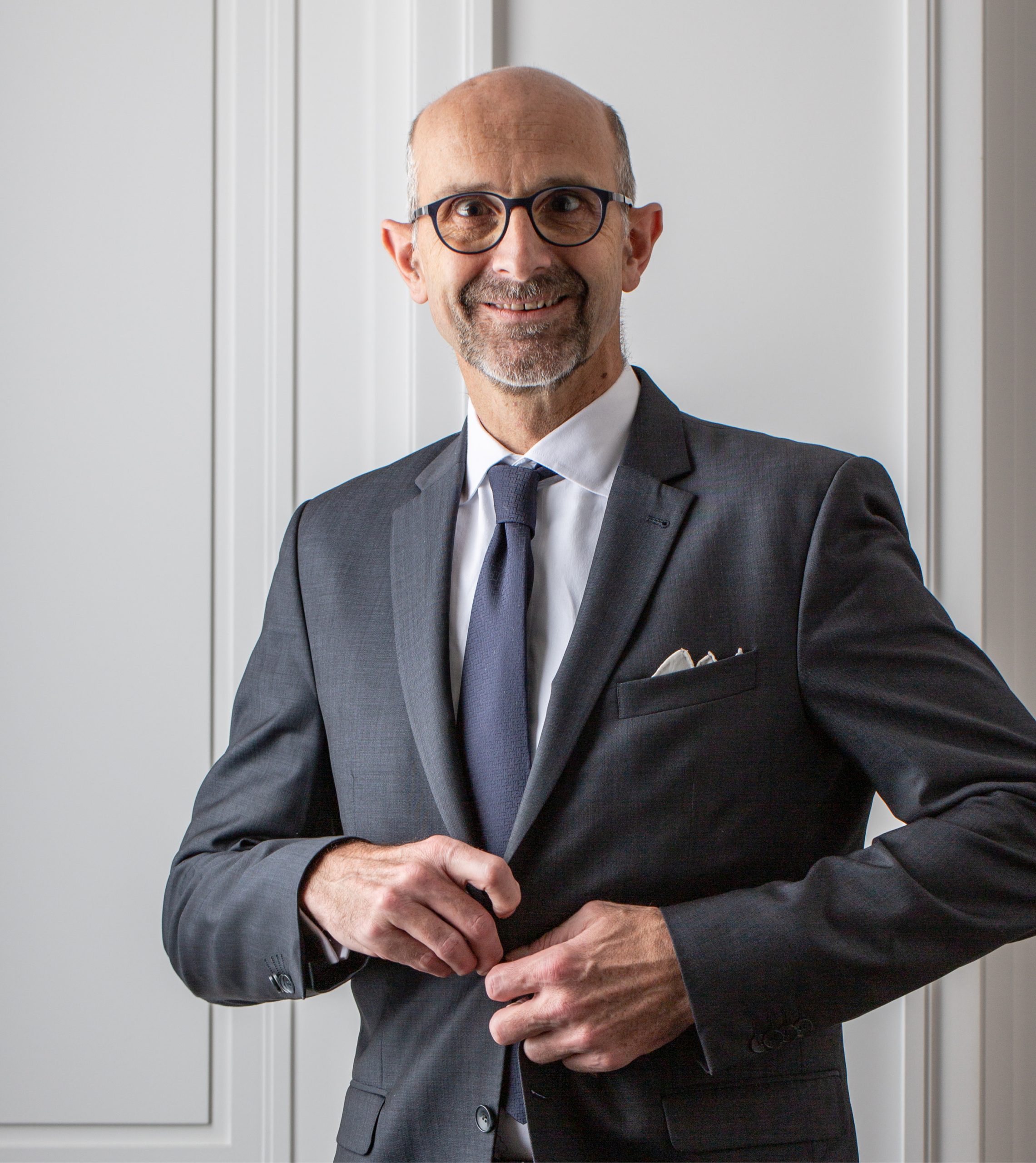
“I remember one time we were staying at the InterContinental in Amman, Jordan. I was just a young boy and I wanted to explore, so they showed me round the kitchens and other behind the scenes areas. I really loved it, and by the time I’d reached my teenage years I wanted to become a chef – although my father quickly put a stop to that idea!”
Guy Bertaud
Once he’d committed to hospitality management, however, there was no stopping Guy’s progress. Across three decades he worked at some of the most iconic hotels in the world, including Paris’ Hotel Plaza Athénée, Monte-Carlo’s Hôtel de Paris, The H Dubai and the Shangri-La Hotel Paris – the latter three in the role of General Manager.
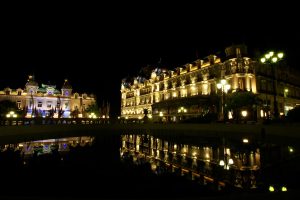
London calling
Guy’s hospitality success story actually starts in London in the 1980s, at the property then known as Le Méridien Piccadilly (today the Piccadilly Hotel). There he took a manager-in-training position that will be familiar to many hospitality professionals reading this feature.
“What it meant is that I was basically the person who could be counted on to go anywhere you had a need and to do whatever others didn’t want to!” he says with a smile. “But I learned so much in that time, because I met really great leaders and I worked alongside people from all over the world, which helped me to appreciate different cultures.”
Two figures in particular inspired Guy and helped to set the tone for his own leadership career in the industry. The first was the hotel’s then General Manager, who made a point of bringing a very human touch to his leadership, addressing every one of the hotel’s 500 employees personally, using their first name.
The second was a veteran Maître d’ who led his team by example, through an exemplary technical knowledge, attention to detail, but above all a truly refined guest service ethic.
“I’d learned a lot in hospitality school, but really it was at Le Méridien where I got to understand the importance of detail. I say this today to the students and young professionals I meet: you have to be a sponge and absorb everything – the good and the bad – and learn from these senior people and their experiences.
“At the same time, you have to be yourself; because that’s how you can give the best and most authentic service to the guests”
“At the same time, you have to be yourself; because that’s how you can give the best and most authentic service to the guests. It’s what we tell our new employees on their induction. We want everyone to be comfortable in their shoes – we’ve even introduced a program of theater classes as a way to help our employees become more self-aware.”
That last comment gives a big clue as to how Maisons Pariente, the boutique hotel company for which Guy is Group Managing Director, goes about its business in its own quite distinctive way.
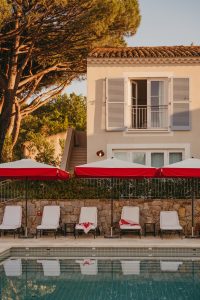
A family business
Maisons Pariente is a contemporary, family-run collection of 5-star hotels, founded by French entrepreneur Patrick Pariente and his two daughters, Leslie Kouhana and Kimberley Cohen. French readers, and those with an interest in fashion, may know Patrick as founder of the fashion retailer NAF NAF.
Located in extraordinary places, each Maisons Pariente hotel is designed as an elegant private house and reveals a unique and arty personality, in perfect harmony with its environment.
The addresses of the collection invite guests to experience simple and warm luxury hotels. The Maisons Pariente spirit. The collection includes four hotels, Crillon le Brave in Provence, Lou Pinet in Saint-Tropez, Le Coucou in Méribel and Le Grand Mazarin in Paris.
Guy joined the business in 2020, with a brief to develop the management company that would support the hotels. And this is one of the interesting features that set Maisons Pariente apart from many other boutique operators.
“Our mission as a central team is to take care of all the commercial and operational parts of running a hotel, leaving the teams on site to focus solely on creating memorable guest experiences,” Guy explains.
“So in head office we do finance, revenue management, commercial, procurement, all of that stuff. As a hotel GM that’s a dream – when I was working in that role I’d spend around 20% of my time doing reports for various stakeholders; and that’s one day out of five that I cannot devote to engaging with my guests.”
Guest service is central to the Maisons Pariente promise – the website describes it as “a sincere and generous service of excellence”. One of the secrets of that engagement comes back to what Guy mentioned earlier about employees being themselves. His vision for Maisons Pariente is to let employees get on with delivering empathetic, personalized service without being weighed down by reams of standards.
“I believe that standards can be like the blinkers you put on a racehorse; they tell you how you have to act from the operator’s perspective; but not from the guest’s perspective. What’s essential to me – at least in our boutique hospitality environment – is to leave some space for the person to express themselves and be different. Because we are humans interacting with humans, you know, we don’t want to be robots bound by standards.
“And it works: if you look through our guest comments, around one in six cites a colleague by name. And this shows that we are personally taking care of our guests. We don’t need a standard on how much they should smile, or whether they are allowed a tattoo or not. If you are pleased with what you do, if you’re proud of what you do, then you will be happy in your job and your life.”
Paris promise
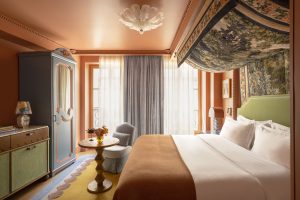
Although it will become the largest property in the group, at 61 rooms, the new hotel in Paris, Le Grand Mazarin, promises this same personalized service but in a bustling, big city environment.
For Maisons Pariente, it represents a bold venture. First, it is located in the lively and avant-garde Marais district, becoming one of only a few hotels operating in this historic location that was formerly the city’s Jewish Quarter. Second, the company has aimed high – to say the least – when it comes to the interior design for Le Grand Mazarin, employing the talents of the legendary Martin Brudnizki to create a unique look and feel for the décor.
“This is a significant moment in the development of Maisons Pariente, for two reasons,” Guy observes. “First, being in Paris gives us a huge worldwide exposure, which will drive our reputation in markets like the United States, the UK, and Germany, for example. Second, by making this decisive choice in terms of design we aim to set the tone for what a contemporary hotel should look like in future.”
As for the future of Maisons Pariente, Guy sees the company staying true to its French roots, with any new properties serving to rebalance its geographical spread within the country.
“At the end of the day we are a French company, and we love our country. There are so many areas to discover in France – as a travel destination it has all the resources you could wish for, whether that’s heritage, nature, gastronomy, whatever. We’re looking towards the south western regions, but more perhaps to some areas that are relatively hidden compared with the famous destinations like Biarritz.”
Tech talk
Guy concludes the conversation by referring to one of hospitality’s hottest discussion points: the impact of technology, and in particular artificial intelligence (AI).
“I’m not anti-technology, because I think it can help us in certain areas. For instance at Le Grand Mazarin we won’t be having a traditional check-in at a reception desk – instead, those employees will be focused on guest relations, offering the guests help and advice in a similar way to a concierge.
“Hospitality is a human to human business, and we must not lose sight of the core reason why we are in this job, which is to take care of people”
“At the same time I worry when I hear people saying that everything will be AI this, AI that. At the end of the day tourism and hospitality is a human to human business, and we must not lose sight of the core reason why we are in this job, which is to take care of people.
“At the end of the day, your guests don’t really look at your financial performance, or your brand values. They look at how they are taken care of, especially if they are spending a lot of money for a luxury experience.”
- To discover more about Maisons Pariente, visit the website
Master the business of hospitality
As our flagship graduate degree, the Master’s in International Hospitality Business delivers the complete hospitality leadership toolbox, with study options in Switzerland and London.
















